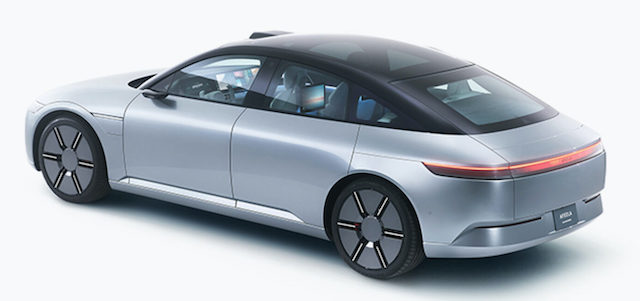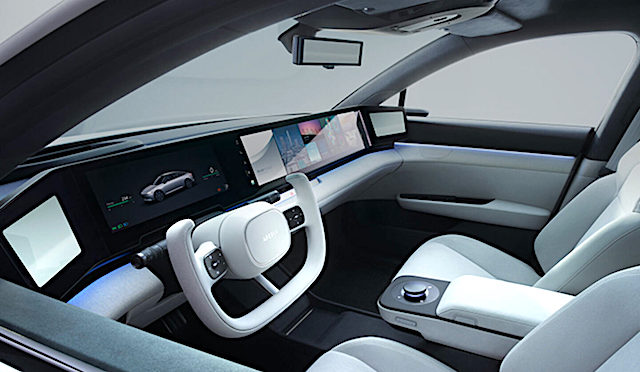
It’s already being dubbed the ‘Playstation on wheels’ – that’s the prototype electric car Japanese electronics giant Sony has developed with carmaker Honda and US computer chip specialist Qualcomm.
Curiously called the Afeela, Sony unveiled it at the Consumer Electronics Show in Las Vegas and promised it would offer the “next-gen mobility experience” when it goes into production for the North American market in 2026.
Sony announced the venture with Honda last March. The futuristic model offers autonomous intelligence operated by 45 cameras and sensors and many other top-of-the-line technologies, including Sony’s sensor tracking and Honda’s safety systems, bolstered by Qualcomm’s Snapdragon Digital Chassis.
The Snapdragon Digital Chassis is a comprehensive set of cloud-connected automotive platforms for telematics and connectivity, computing, and driver assistance and autonomy.

“In order to realise intelligent mobility, continuous software updates and high-performance computing are required,” Yasuhide Mizuno, the chief executive of Sony Honda Mobility, told the trade show. “To that end, we will work closely with Qualcomm.”
Afeela owners will get to process road, navigation, and safety information gleaned from their driving. Key features include the car’s exterior Media Bar, which uses light to communicate between other drivers and passengers, including the car’s battery status.
Sony Honda Mobility aims to develop Level 3 automated driving under limited conditions and enable Level 2+ driver assistance in more standard scenarios, including urban driving.

Qualcomm has launched a new processor, the Snapdragon Ride Flex SoC, that handles both assisted driving and cockpit functions, including entertainment. Previously those functions were handled on different chips, and bringing them together can help bring down costs, a Qualcomm executive told Reuters.
Sony claims Afeela owners will be able to post anything from sports scores to Spider-Man animations on the flickering back lights – or perhaps flash inconsiderate drivers a grumpy face.
The Afeela prototype offers a blend of the real world and the virtual world – the car will use the “Unreal Engine” 3-D creation tool from Epic Games, the maker of the “Fortnite” series of games.
If nothing else, Afeela shows how carmakers are increasingly focused on the cockpit experience in cars, which offers the potential to sell content via subscription services, especially as autonomous driving capabilities improve.
